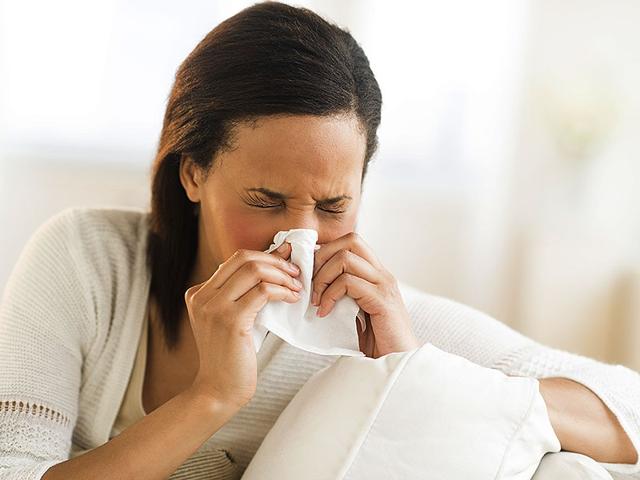Be alert, avoid allergens as harvesting on: Experts
With the change in weather and start of wheat harvesting season, the people who are prone to allergic diseases need to take precautionary measures to keep problems at bay, say medical experts.
With the change in weather and start of wheat harvesting season, the people who are prone to allergic diseases need to take precautionary measures to keep problems at bay, say medical experts.

Dr Akashdeep Singh, associate professor of respiratory medicine, Dayanand Medical College and Hospital (DMCH), said, "A person may be allergic if he or she gets sneezing, coughing, breathlessness, skin rashes, chest congestiion etc from a particular allergen. It is high time to be on preventive mode to avoid serious consequences. From the second week of April, when the wheat harvesting starts, the people having respiratory problems like asthma, bronchitis and alike, need to take extra care."
Dr Akashdeep Singh said, "For asthma patients, who already have hyperactive airways, these pollutants are further damaging and can trigger asthma attacks, especially among the elderly and children. Thus it's necessary for them to take preventive measures well in advance."
Medicine expert Dr RK Karkara, senior medical officer at Community Health Centre Sahnewal, said, "Allergies increase in this season because of increase in dust level. It further increases when stubble is burnt in the fields, which remain a testing time for the asthama or other respiratory disease patients. It's better to remain indoor and avoid dust or pollution in this season in case a person has history of some sort of allergy."
Dr Karkara said, "Besides the respiratory diseases, people especially children can feel irritation in the eyes due to excessive dust or smoke. Some people can also get rashes on skin due to allergy to some dust particles etc. It is always better to take medicine on time. Consult doctors immediately if it happens for the first time."
Preventive steps
One should know the allergens his or her body is sensitive to. It helps him the person to protect himself.
Take medicine well on time to avoid problems.
Avoid going outside, particularly in fields where harvesting is on or where dust level is high.
It's better to go outside covering the face and eyes.
Medicine dose should be increased if the level of allergen gets increase, but in consultation with doctor.
Use proper sunscreen or wear full sleeve cotton clothes to avoid skin allergies.
A person experiences wheezing (breathlessness) despite using an inhaler, or if there is repeated nasal discharge even after taking medicines, he should consult doctor immediately





